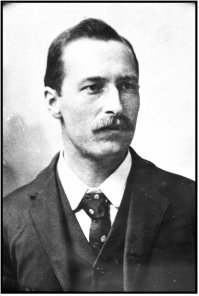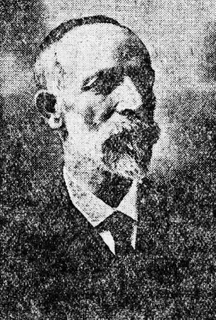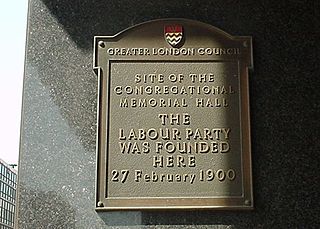Related Research Articles

James Keir Hardie was a Scottish trade unionist and politician. He was a founder of the Labour Party, and served as its first parliamentary leader from 1906 to 1908.

The Independent Labour Party (ILP) was a British political party of the left, established in 1893, when the Liberals appeared reluctant to endorse working-class candidates, representing the interests of the majority. A sitting independent MP and prominent union organiser, Keir Hardie, became its first chairman.

Arthur W. Puttee was a British-Canadian printer and politician. Puttee was the first Labour Member of Parliament (MP) in the House of Commons of Canada, sitting as Winnipeg MP from 1900 to 1904.

Politics in Wales forms a distinctive polity in the wider politics of the United Kingdom, with Wales as one of the four constituent countries of the United Kingdom (UK).

Richard Bell was one of the first two British Labour Members of Parliament, and the first for an English constituency, elected after the formation of the Labour Representation Committee in 1900.
James MacDonald was a British trade unionist.

The Sheffield Trades and Labour Council, usually known as the Sheffield Trades Council, is a labour organisation uniting trade unionists in Sheffield.
The Central Labour College was a British higher education institution supported by trade unions. It functioned from 1909 to 1929. It was established on the basis of independent working class education.

Isabella Ormston Ford was an English social reformer, suffragist and writer. She became a public speaker and wrote pamphlets on issues related to socialism, feminism and worker's rights. After becoming concerned with the rights of female mill workers at an early age, Ford became involved with trade union organisation in the 1880s. A member of the National Administrative Council of the Independent Labour Party, she was the first woman to speak at a Labour Representation Committee conference.

The Labour-Farmer Party was a political party in the Empire of Japan. It represented the left-wing sector of the legal proletarian movement at the time. Oyama Ikuo was the chairman of the party. At the time the party was banned by the government in 1928, it was estimated to have around 90,000 members in 131 local organizations. The party was supported by the Hyōgikai trade union federation and the Japan Peasant Union.

Allen Gee was a British trade unionist and politician.
The Labour Electoral Association was a political organisation in the United Kingdom which aimed to get working men elected to Parliament.
The Dewsbury by-election, 1902 was a by-election held in England on 28 January 1902 for the House of Commons constituency of Dewsbury in the West Riding of Yorkshire.

The Trades Union Congress (TUC) is a national trade union centre, a federation of trade unions in England and Wales, representing the majority of trade unions. There are 48 affiliated unions, with a total of about 5.5 million members. The current General Secretary is Frances O'Grady.

The Labour Representation Committee (LRC) was a pressure group founded in 1900 as an alliance of socialist organisations and trade unions, aimed at increasing representation for labour interests in the Parliament of the United Kingdom. The Labour Party traces its origin to the LRC's foundation.
Alfred Mervyn Wall was a British trade unionist and political activist.
John Stokes was a British trade unionist and political activist.

Frederick Rogers (1846–1915) was an English bookbinder, trades unionist, writer and journalist. He is notable as first chairman of the Labour Representation Committee, the organisation to which the Labour Party traces its origins, as well as for a lifetime of work dedicated to educational improvement for the working class, and to the introduction of a general tax-funded system of old-age pensions.
Owen Connellan was a British politician and trade unionist.
References
- ↑ Morgan, Kenneth Owen. Rebirth of a nation: Wales, 1880-1980 . Oxford Paperbacks. Oxford: Univ.Pr. [u.a.], 1982. p. 75
- 1 2 3 Tamiment Institute. Labor History . New York: Tamiment Institute], 1962. p. 114
- ↑ Jones, Aled. Press, Politics and Society: A History of Journalism in Wales . Cardiff: Univ. of Wales Press, 1993. p. 138
- 1 2 Boyce, George, James Curran, and Pauline Wingate. Newspaper History from the 17th Century to the Present Day . London: Constable, 1978. p. 392
- ↑ Brown, Kenneth Douglas. The First Labour Party, 1906-1914 . London: Croom Helm, 1985. p. 110
| This European political magazine or journal-related article is a stub. You can help Wikipedia by expanding it. See tips for writing articles about magazines. Further suggestions might be found on the article's talk page. |